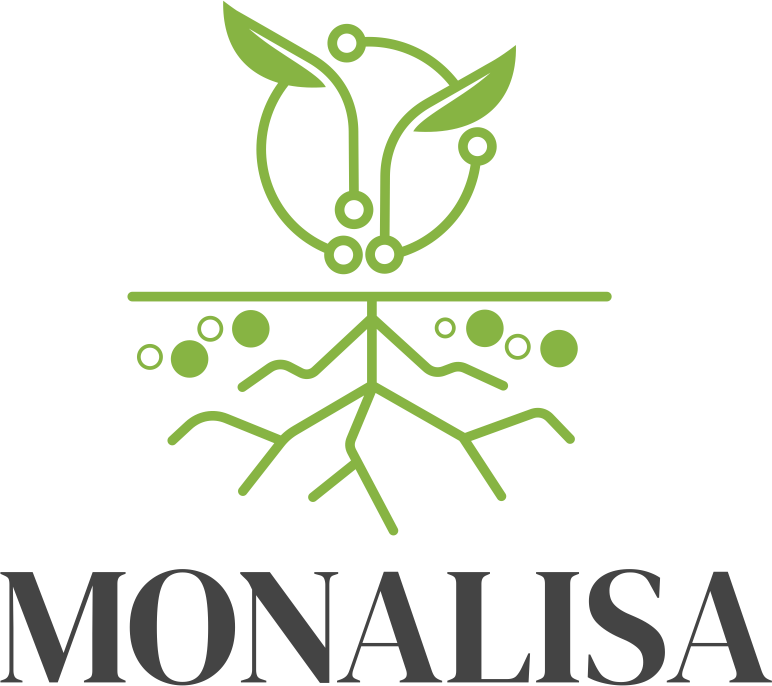What we do
THE CHALLENGE
The primary challenge facing the MONALISA project is addressing the complex issue of land degradation and desertification (LDD) in Mediterranean drylands, which are under increasing climatic pressure and have limited adaptive capacity. The project must navigate diverse socioeconomic, environmental and cultural constraints to identify tailored, scalable solutions that promote sustainable land management and ecosystem restoration. Additionally, MONALISA needs to ensure the integration of scientific knowledge with local action through stakeholder collaboration, while leveraging advanced digital tools and innovations to monitor and address LDD.
This closely aligns with the goals outlined in the EU’s Sustainable Development Agenda, specifically SDG 15, which emphasizes the need to “protect, restore and promote sustainable use of terrestrial ecosystems,” combat desertification and land degradation. The project’s focus on local innovation, interdisciplinary research, and stakeholder collaboration echoes the agenda’s call for partnerships and integrated approaches to sustainable land management (paragraph 33 of the 2030 Agenda). By supporting the EU’s “Soil Deal for Europe” initiative, MONALISA directly contributes to the broader mission of reversing land degradation and fostering resilience through sustainable practices through Case Study locations.
MONALISA Primary Objective

Identify and promote innovative, tailored solutions to combat LDD in European and Mediterranean drylands. The project aims to provide a methodological framework to assess and monitor LDD risk while enhancing soil productivity across diverse land uses, including agriculture and agroforestry.
MONALISA integrates scientific knowledge, local practices, advanced digital systems, artificial intelligence and remote sensing technologies.
The project addresses the “last mile” challenge by fostering collaboration between researchers, policy-makers, and land managers to ensure the adoption and scalability of these solutions.
MONALISA DSS
The Decision Support System (DSS) in the MONALISA project is a multi-modular, practice-oriented system composed of web-based applications that include 4 specialized modules, each focused on key agricultural practices: improving fertilization with organic fertilizers, managing irrigation and water harvesting, innovative grazing systems, and restoring natural habitats like grasslands. This tool will help farmers and policymakers make informed decisions to combat land degradation and desertification (LDD).
The DSS will offer valuable insights through predictive models and key indicators. The platform will feature a user-friendly interface tailored to both policymakers and end-users, with the potential to incorporate existing applications for a seamless experience in LDD monitoring and mitigation.
Six Case studies will test and validate the approach for broader impact.
Block #1
Block #1
Block #2
Block #2
Block #3
Block #3
Block #4
Block #4
Block #5
Block #5
Block #6
Block #6
MONALISA Results
The MONALISA project delivered significant contributions toward combating land degradation and desertification (LDD) across European and Mediterranean drylands. The project results range from methodological frameworks and tools to practical solutions implemented in case study areas. MONALISA facilitated the development of new indicators, management scenarios, and technological innovations such as AI algorithms and decision support systems (DSS). It also created extensive capacity-building initiatives, engaging stakeholders, scientists, and land managers while advancing policy recommendations and commercial exploitation strategies.
The expected outcomes of the MONALISA project include a comprehensive understanding of the socio-economic and climatic drivers, extent, and impacts of various types of land degradation, such as water scarcity, vegetation loss, and soil erosion, in both natural and agricultural systems of arid and increasingly arid areas. This knowledge, accurately measured at relevant scales and tied to specific land uses, is shared widely among key stakeholders. Additionally, the project demonstrates the economic viability and environmental effectiveness of solutions for desertification prevention and land restoration, including soil protection, water retention, biodiversity preservation, and increased land resilience to drought. Land managers in desertification-prone areas will gain enhanced access to these context-specific solutions and the conditions under which they are effective. Furthermore, sustainable soil and water management practices will expand, improving moisture retention and soil organic matter management across diverse land-use types and regional contexts.
MONALISA concept
WP1 – Coordination and management
Coordinator
Objective
WP1 coordinates the project, ensures governance, manages finances, monitors progress, facilitates communication, and handles reporting, risks, and conflicts.
In this work package Consortium ensures compliance with agreements through a transparent, adaptable approach.
Deliverables
- D1.1 – First Project meetings Report
- D1.2 – Second Project meetings report
- D1.3 – Final Project meetings report
- D1.4 – First Report of the CS-SC meetings
- D1.5 – Final Report of the CS-SC meetings
- D1.6 – First Data Management Plan
- D1.7 – Final Data Management Plan
WP2 – Innovative practices for avoiding/restoring LDD in Case studies
Objective
WP2 demonstrates the social, economic and environmental benefits of practices and solutions to combat land degradation and desertification (LDD).
Through this WP we will co-design and test restoration methodologies, integrate knowledge, identify barriers and mobilizes stakeholders as ambassadors.
WP2 coordinates workflows across WPs and case studies.
Deliverables
- D2.1 – Review of existing knowledge on innovative practices in agriculture, agroforestry and seminatural/natural ecosystems
- D2.2 – First Report on the results of codesign and co-innovation of solutions to combat LDD in the CS
- D2.3 – Final Report on the results of the co-design and co-innovation of solutions to combat LDD in the CS
- D2.4 – First report on the implementation and effectiveness of solutions tested to combat desertification in the CS
- D2.5 – Final report on the implementation and effectiveness of solutions tested to combat desertification in the CS
- D2.6 – Soil assessment protocol
- D2.7 – Report on the initial status of soils in the CS
WP3 – Building a framework for desertification risk assessment and monitoring system in Europe
Objective
WP3 aims to develop a framework for assessing and monitoring LDD risk in the Mediterranean, providing resources and introducing innovative methodologies.
Deliverables
- D3.1 – Knowledge, experiences, and gap analysis for LDD monitoring and assessment
- D3.2 – Methodological framework for desertification risk assessment and monitoring
- D3.3 – Land Degradation and Desertification hotspot maps in Mediterranean and Central-South-Eastern Europe
WP4 – Addressing desertification through digital innovation at local scale
Objective
WP4 addresses local land degradation and desertification (LDD) by developing a web-based, modular decision support system (DSS) tool using open-source software for transparency and reproducibility. WP4 leverages digital data and techniques to create this tool.
Deliverables
- D4.1 – First Project Dashboard
- D4.2 – Predicting models and scenario analysis of desertification risk and impact of practices
- D4.3 – Final Project Dashboard D4.4 – LDD indicators and mapping at CS scale
- D4.5 – Multi-modular practices-oriented DSS: alfa-version release
- D4.6 – Multi-modular practices-oriented DSS: beta version release
- D4.7 – MONALISA Open Knowledge Framework
WP5 – Dissemination, communication, exploitation and capacity building
Objective
WP5 disseminates MONALISA results, promoting LDD solutions through a strategy connecting problem-owners with solution-providers. It enhances visibility globally, raising awareness, boosting land managers’ capabilities, and fostering innovation.
Deliverables
- D5.1 – First Dissemination, Exploitation and Communication plan
- D5.2 – Second Dissemination, Exploitation and Communication plan
- D5.3 – Third Dissemination, Exploitation and Communication plan
- D5.4 – Final Dissemination, Exploitation and Communication Plan
- D5.5 – Practice abstracts
- D5.6 – Practice abstracts (Final set)
- D5.7 – First Report on the common actions for cross-fertilisation with other related initiatives
- D5.8 – Final Report on the common actions for cross-fertilization with other related initiatives
- D5.9 – Plan for engagement of the Community of knowledge
- D5.10 – Report on the knowledge community activities
- D5.11 – Policy recommendations
- D5.12 – Plan on Capacity development initiatives
- D5.13 – Report on Capacity development initiatives
- D5.14 – Syllabus for a capacity development programme for PhD students
- D5.15 – Case study Logbooks and toolkit on the solutions
WP6 – Technology-market, transfer, growth & sustainability
Objective
WP6 aims to ensure MONALISA’s KERs’ sustainability, foster stakeholder partnerships, and prepare the DSS for market through analysis and adaptable business plans. It develops IPR strategies, aligns sales with sustainability content, and boosts outreach via a dedicated website section.
Deliverables
- D6.1 – First Post-Project Sustainability & Partner Integration Playbook
- D6.2 – Second Post-Project Sustainability & Partner Integration Playbook
- D6.3 – Final Post-Project Sustainability & Partner Integration Playbook
- D6.4 – First Market Analysis, Feasibility Study, Business Plans and IPR Mgmt. Strategy
- D6.5 – Final Market Analysis, Feasibility Study, Business Plans and IPR Mgmt. Strategy
